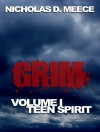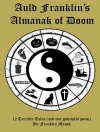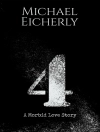The narrator, Francis Wayland Thurston, recounts his discovery of notes left behind by his grand-uncle, Brown University linguistic professor George Gammell Angell after his death in the winter of 1926-27. Among the notes is a small bas-relief sculpture of a scaly creature which yields ‘simultaneous pictures of an octopus, a dragon, and a human caricature.’ The sculptor, a Rhode Island art student named Henry Anthony Wilcox, based the work on delirious dreams of ‘great Cyclopean cities of titan blocks and sky-flung monoliths.’ Frequent references to Cthulhu and R’lyeh are found in Wilcox’s papers. Angell also discovers reports of mass hysteria around the world…
A propos de l’auteur
Howard Phillips Lovecraft (August 20, 1890 – March 15, 1937) was an American writer who achieved posthumous fame through his influential works of horror fiction. He was virtually unknown and published only in pulp magazines before he died in poverty, but he is now regarded as one of the most significant 20th-century authors in his genre.
Lovecraft was born in Providence, Rhode Island, where he spent most of his life. Among his most celebrated tales are ‘The Rats in the Walls’, ‘The Call of Cthulhu’, At the Mountains of Madness and The Shadow Out of Time, all canonical to the Cthulhu Mythos. Lovecraft was never able to support himself from earnings as author and editor. He saw commercial success increasingly elude him in this latter period, partly because he lacked the confidence and drive to promote himself. He subsisted in progressively strained circumstances in his last years; an inheritance was completely spent by the time that he died at age 46.












